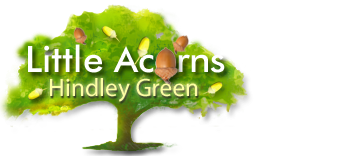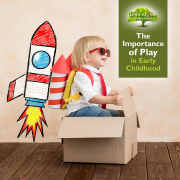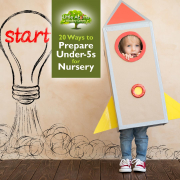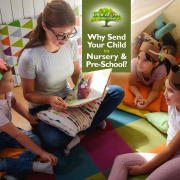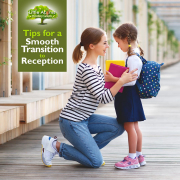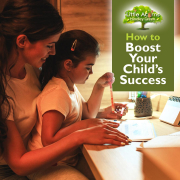Under-5 to Superchild! The Power of Reading With Your Child
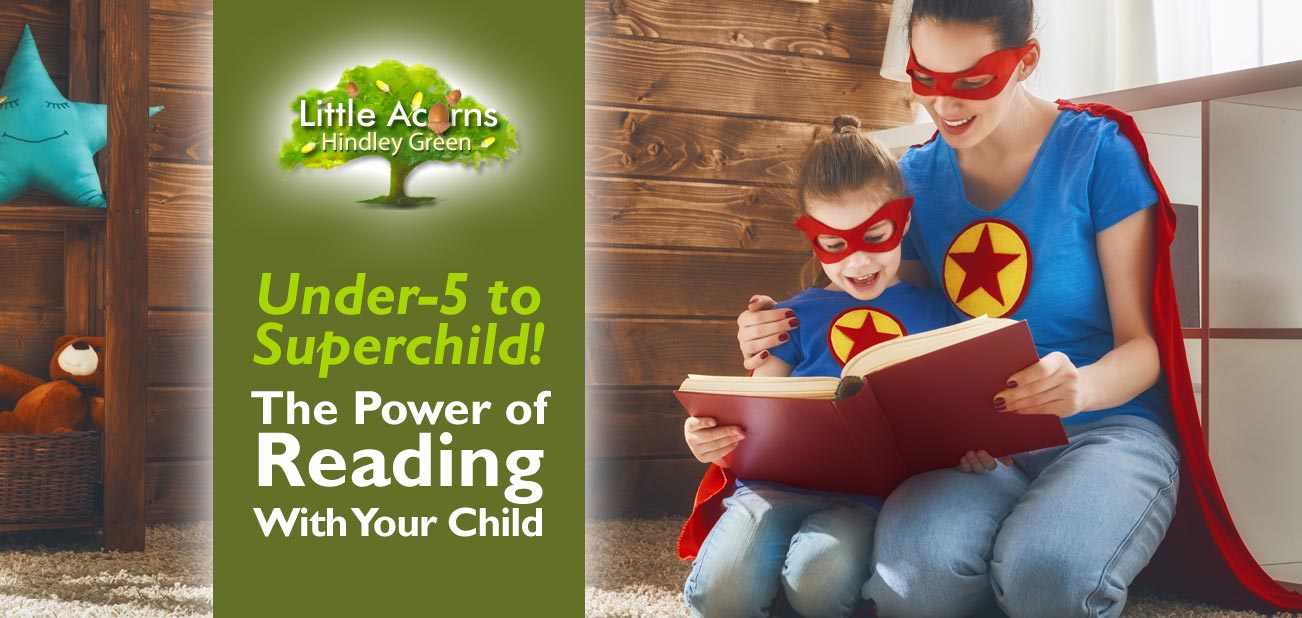
 In the journey of childhood development, there is a simple yet powerful tool that supercharges learning, imagination and even life outcomes: reading with your child. While a magical connection with books is a cherished tradition in many families, it is also a proven way to optimise a child’s cognitive and emotional development — and even to give some a social boost. With that in mind, we explore today the incredible benefits of reading with children in the early years and learn how study after study has proven how transformational it is to their lives.
In the journey of childhood development, there is a simple yet powerful tool that supercharges learning, imagination and even life outcomes: reading with your child. While a magical connection with books is a cherished tradition in many families, it is also a proven way to optimise a child’s cognitive and emotional development — and even to give some a social boost. With that in mind, we explore today the incredible benefits of reading with children in the early years and learn how study after study has proven how transformational it is to their lives.
Enhanced Cognitive Development
Numerous studies have demonstrated the profound impact of reading on cognitive development in young children. The studies found that reading with children between the ages of 3 and 5 results in significantly improved cognitive skills, including attention span, memory, language development, logical thinking, and problem-solving skills.
This cognitive enrichment is not just confined to early childhood. Long-term studies have revealed that children who are read to regularly during their early years are more likely to perform well academically throughout their school years. We’ll explore more about how reading in the early years prepares children for school later in this article.
Transformed Language, Vocabulary, Spelling & Literacy
 One of the most notable benefits of early reading is the rapid expansion of a child’s vocabulary. Indeed, research suggests that children who are exposed to a diverse range of words in books tend to perform better in language assessments, spelling, and overall literacy development. With reading to children opening up whole new worlds of information and vocabulary to them, this positive outcome makes total sense.
One of the most notable benefits of early reading is the rapid expansion of a child’s vocabulary. Indeed, research suggests that children who are exposed to a diverse range of words in books tend to perform better in language assessments, spelling, and overall literacy development. With reading to children opening up whole new worlds of information and vocabulary to them, this positive outcome makes total sense.
Academic Preparedness
Early reading provides a substantial head start in academics. A 40-year study by the Nuffield Foundation in the UK tracked the development of children from birth to age 7. Results revealed that children who were read to several times a week at a young age had a significant advantage in literacy skills when they started school.
The language skills of children aged just 3¼ years old were found to receive a 20% boost when they were regularly read to by a parent or carer. That’s an 8-month improvement!
Children who experience shared reading activities with their parents in their early years also tend to have a more positive attitude towards learning. They therefore perform better in school. Indeed, many enter formal education with increased confidence and a love for learning.
Advanced Emotional Intelligence
 Reading with children also contributes to the development of enhanced empathy and emotional intelligence. Stories often feature characters experiencing a variety of emotions, and by engaging with these stories, children learn to empathise and connect with the feelings of others. That’s because exposure to complex characters and their emotional experiences in books helps children better understand and relate to the emotions of people in their real lives.
Reading with children also contributes to the development of enhanced empathy and emotional intelligence. Stories often feature characters experiencing a variety of emotions, and by engaging with these stories, children learn to empathise and connect with the feelings of others. That’s because exposure to complex characters and their emotional experiences in books helps children better understand and relate to the emotions of people in their real lives.
Social Mobility
Remarkably, the benefits of reading with young children also have the potential to break the cycle of socio-economic disadvantage. Several studies have found a strong correlation between early reading habits and positive socio-economic outcomes later in life. Specifically, children from economically disadvantaged backgrounds were found to be more likely to surpass the usual limitations of their circumstances when exposed to regular reading sessions with adults at an early age. This positive effect was found to extend well into adulthood. Individuals who were avid readers during their childhood were found to be more likely to achieve higher levels of professional success, with better job prospects, higher incomes, and greater job stability.
Tips for Effective Reading Sessions
Note that, at the start of this article and throughout, we have talked about reading with your child as opposed to simply reading to them. That’s an important differentiation because reading with children means involving them, so they’re fully engaged throughout. That’s another huge factor in unlocking the most potential for the child. So, how do we go about that?
Make it Fun!
Reading in a monotone voice is a sure way to get children to switch off and disengage from your reading sessions. Instead, make it fun by immersing yourself, as the reader, into the different characters and situations, using different volumes, voices, accents, cadences and tones as appropriate. This will naturally captivate your child, bring the story to life, and make it fun!
Encourage Interaction
Engage your child in the reading process. Ask your child questions about the storyline and characters. See if they can guess what happens next and discuss the story generally. This interaction enhances their attention, comprehension and critical thinking skills.
Encourage Questions
When your child asks questions or wants to talk about the story, embrace those moments. It shows their active engagement and curiosity. Encouraging discussions will help to deepen their understanding in so many ways.
Quality Time Spent Together
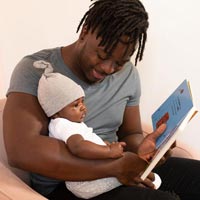 Reading is not just about the words on the page; it’s also about the quality time you spend together. The connection you build during reading sessions is priceless, fostering stronger bonds between you and your child.
Reading is not just about the words on the page; it’s also about the quality time you spend together. The connection you build during reading sessions is priceless, fostering stronger bonds between you and your child.
A Positive Example
Children often mimic their parents’ behaviour. By showing them that you value reading, they are more likely to embrace it as a positive and enjoyable activity. So, why not become a reading role model and let your child see your enthusiasm for books? It’ll not only be fun and engaging for them but is also likely to result in a love for learning and a huge number of profoundly positive benefits.
Quality Childcare & a Good Early Years Education at Little Acorns Nursery, Hindley Green
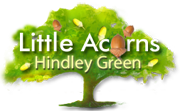
 As we’ve said before, parental engagement with children’s education is incredibly beneficial to little ones and that’s particularly true in the case of reading with them. So, we take every opportunity to read with children and encourage interaction at Little Acorns Nursery in Hindley Green. Reading with children is not only giving the gift of knowledge but also a key to unlocking future opportunities and even social mobility. As such, it is an incredibly powerful tool that effectively supercharges children’s education and future prospects. And don’t forget, of course — children simply love it!
As we’ve said before, parental engagement with children’s education is incredibly beneficial to little ones and that’s particularly true in the case of reading with them. So, we take every opportunity to read with children and encourage interaction at Little Acorns Nursery in Hindley Green. Reading with children is not only giving the gift of knowledge but also a key to unlocking future opportunities and even social mobility. As such, it is an incredibly powerful tool that effectively supercharges children’s education and future prospects. And don’t forget, of course — children simply love it!
If you are seeking the best childcare nursery in Hindley Green for your child, please get in touch. We offer a first-class weekday childcare service and early years education for babies and children under five. We also support all Government-funding childcare options, making childcare more affordable for eligible families. Please select an option below to further explore a place for your child at Little Acorns Nursery:
Little Acorns is a nursery near Wigan, Bickershaw, Leigh, Atherton, Westhoughton, Ince-in-Makerfield, Platt Bridge, Tyldesley, Bolton and Greater Manchester.
